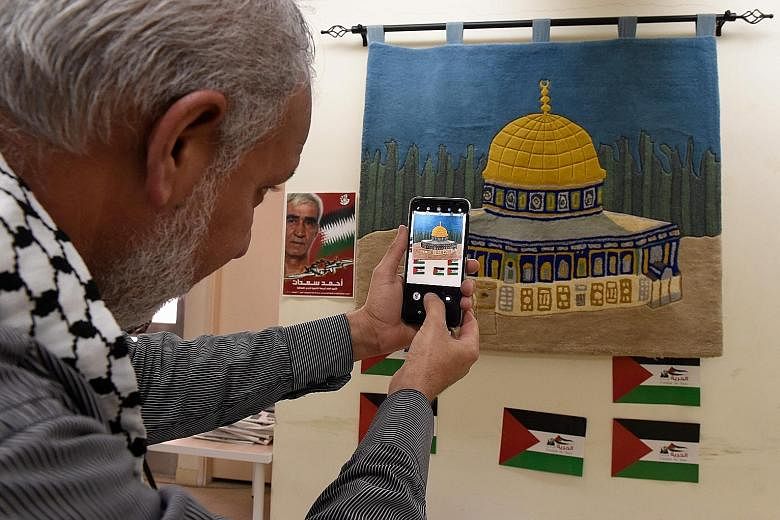MANAMA/DUBAI • Bahrainis opposed to establishing diplomatic ties with Israel have vented their frustration, while lonelier voices supported the accord - underlining the complexities of the Gulf's rapprochement with the Jewish state.
US President Donald Trump announced the deal late last Friday.
Bahrain, a Sunni-ruled kingdom with a large Shi'ite population, shares with Israel a deep enmity towards Iran and relies on the United States, which stations its Fifth Fleet on the tiny but strategic archipelago.
Bahrain has become the second Arab country in a month to announce plans to normalise ties with Israel after the United Arab Emirates (UAE) struck an accord that promises major gains on the security, trade and tourism fronts.
Bahrain's Foreign Minister Abdullatif bin Rashid Al-Zayani said the deal represented a historic step towards achieving peace in the Middle East, but the Palestinian Authority and Islamist movement Hamas condemned it as "another stab in the back" by an Arab government.
Palestinian leaders yesterday called for demonstrations against the "shameful" deals the UAE and Bahrain were set to sign with Israel.
The statement also called for rallies outside the embassies of the US, Israel, Bahrain and the UAE.
Unlike in the UAE, opposition to normalisation runs deep in Bahrain, which has a history of open politics and civil society movements, even if they have been suppressed over the past decade.
Prominent journalist Radhi Almosawi said the deal was made in the interests of Israel and the US, and not in the interests of Bahrain and the Gulf, which stand to be criticised for abandoning the Palestinian cause.
"The position is clear: we are against normalisation, and we believe that the agreement is a decision that was taken without consulting all members of society," he said.
But Ms Ahdeya Ahmed, head of the Bahrain Journalist Association, said the deal is "an amazing step and a very positive step towards the peace process".
The head of Bahrain's Jewish community Ebrahim Dahood Nonoo said in a statement that "this is a historic moment that we have never expected to see in our lifetime".
The deal was also welcomed by Oman. It said: "Oman hopes this new strategic path taken by some Arab countries will contribute to bringing about peace based on an end to the Israeli occupation of Palestinian lands and on establishing an independent Palestinian state with East Jerusalem as capital."
Israel's intelligence minister said a few days after the UAE-Israel accord was announced on Aug 13 that Oman could also formalise ties with the country.
Shi'ite Iran, which has especially tense ties with Bahrain and is a sworn enemy of Washington, slammed its Gulf neighbour over the deal.
"The rulers of Bahrain will from now on be partners to the crimes of the Zionist regime as a constant threat to the security of the region and the world of Islam," it said.
Turkey also condemned the deal, saying it would "further embolden Israel to continue its illegal practices... and attempts to make the occupation of Palestinian territories permanent".
AGENCE FRANCE-PRESSE, REUTERS

